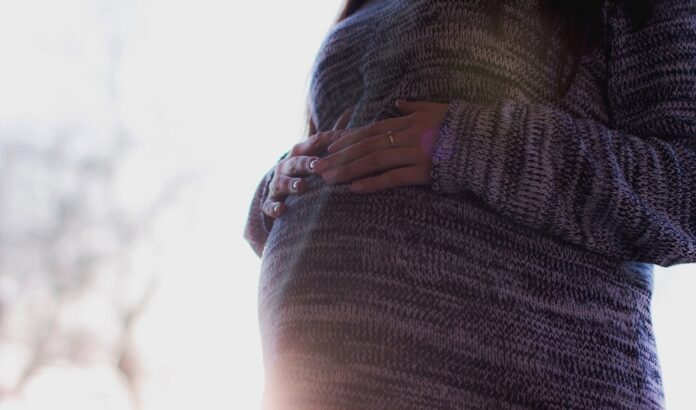The country’s largest clinical study investigating the best gap between first and second COVID-19 vaccine doses for pregnant women is being launched in Greater Manchester.
The Preg-CoV study will take place at Saint Mary’s Hospital, part of Manchester University NHS Foundation Trust (MFT) and NIHR Manchester Clinical Research Facility at Royal Manchester Children’s Hospital (RMCH), and is supported by the National Institute for Health Research (NIHR) and backed by £7.5 million of government funding.
Led by St George’s, University of London, the study will provide vital clinical trial data on the immune response to vaccination at different dose intervals – either four to six weeks or eight to 12 weeks. This data will help determine the best dosage interval and tell us more about how the vaccine works to protect pregnant mothers and their babies against COVID-19.
Pregnant women are more likely to develop severe COVID-19 or die from the disease, but are excluded from clinical trials with new vaccines. This means there are currently very limited clinical trial data on the immune response and side effects caused by the vaccines for these women.
The trial will involve over 600 pregnant women being vaccinated, across 13 NIHR-supported sites, with either the Pfizer/BioNTech or the Moderna vaccine. They will be closely monitored by health professionals throughout their pregnancy and following the birth, with the safety of the women taking part in the study the utmost priority.
Following 130,000 pregnant women being vaccinated in the US and no safety concerns being raised, the Pfizer/BioNTech and Moderna vaccines were recommended by the independent experts at the Joint Committee on Vaccination and Immunisation (JCVI) for pregnant women in the UK. Over 52,000 pregnant women in England have now been vaccinated – similarly, with no safety concerns.
Recent data published last week by NHS England and the University of Oxford show no pregnant women who have had both doses of a vaccine have been admitted to hospital with COVID-19. Only three have been admitted after having their first dose, meaning 98% of those admitted to hospital have not received a jab.
The Preg-CoV participants will need to be between 18 and 44-years-old, be generally healthy and be between 13 and 34 weeks pregnant on the day of vaccination. They will receive two doses of a COVID-19 vaccine (or one dose if they’ve already had their first) at either the shorter interval of four to six weeks, or the longer interval of eight to 12 weeks.
They will be scheduled to attend nine visits in total and will be required to complete an electronic diary between visits on any symptoms. They will also be given a 24-hour mobile number so they can contact one of the trial team at any time if they have concerns.
The scientists behind the trial will analyse blood samples from the participants and one blood sample from their newborn babies, alongside samples from breastmilk. They will use the samples to help understand more about how the vaccines are protecting both pregnant women and potentially also their babies from COVID-19, with initial results expected by the end of the year.
The study will open for applications from volunteers today via the study’s website, with vaccinations set to start from mid-August. Participants will also be recruited to the study by invites sent through the NHS COVID-19 Vaccine Research Registry, which allows research teams to speak to suitable volunteers who have signed up to be contacted about taking part in vaccine studies.
Dr Teresa Kelly, Principal Investigator for Preg-CoV at MFT and Consultant Obstetrician, said: “The Preg-CoV study forms part of the national vaccine research strategy to identify vaccine dosage intervals and to protect everyone, especially vulnerable people like pregnant women, against coronavirus. Covid vaccination is recommended in pregnancy and we know vaccination is safe in pregnancy. This study is to will answer pressing questions around the most suitable intervals between jabs. We’re delighted to be able to offer pregnant women the opportunity to participate in this important research. As ever, we are hugely appreciative of everyone who takes part in studies to further our understanding of COVID-19 and all conditions we carry out research into.”







